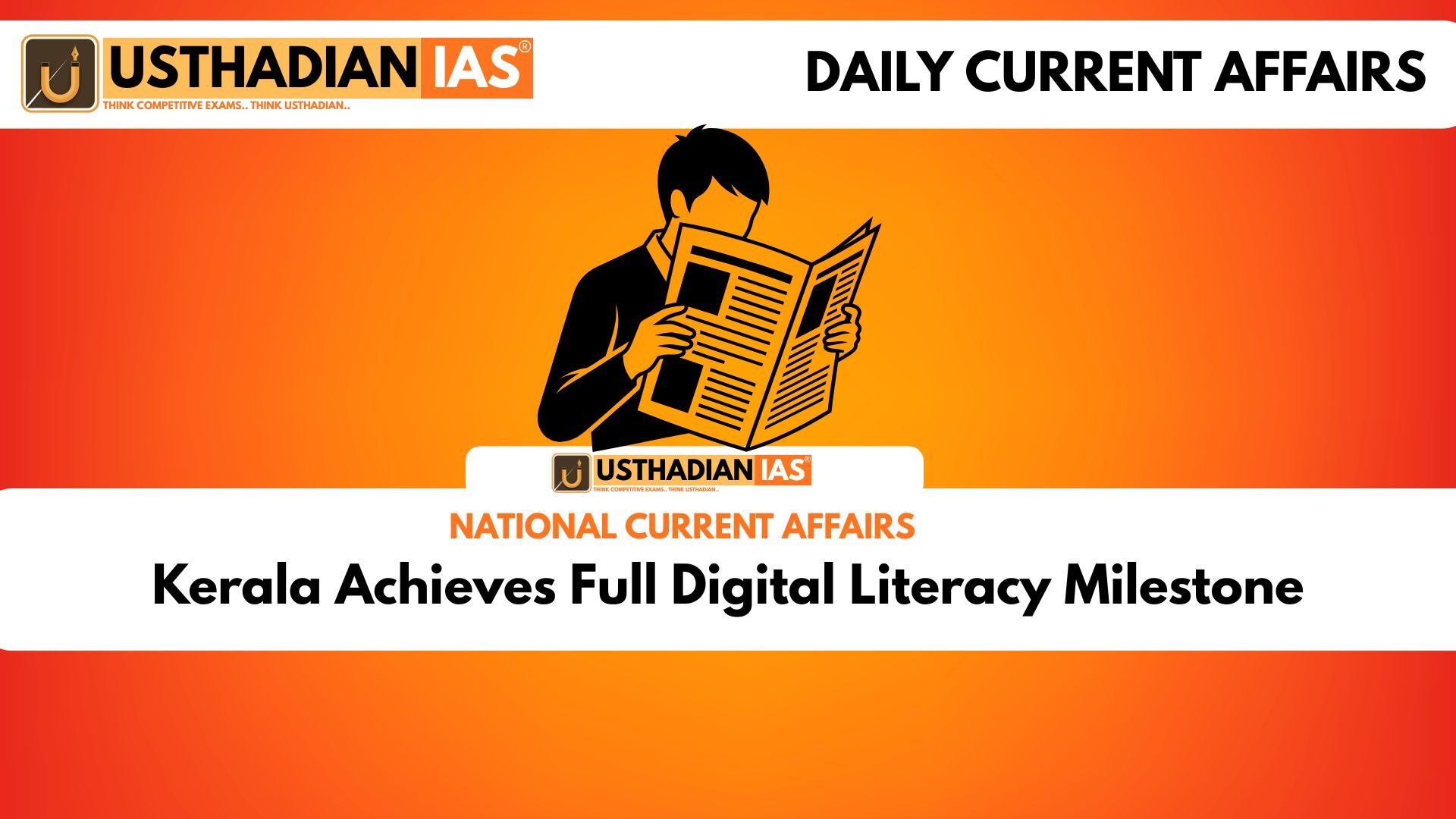Kerala sets a national record
Kerala Achieves Full Digital Literacy Milestone: Kerala has become the first 100% digitally literate state in India. This milestone was achieved through the Digi Keralam programme, launched in 2023 with the aim of providing digital knowledge and e-services to every resident, regardless of age or background. The initiative marks a significant step in India’s journey towards inclusive digital transformation.
Static GK fact: Malappuram in Kerala became the first e-literate district in India under the Akshaya project in 2002.
Building on earlier initiatives
The state’s success is rooted in strong foundations. The Akshaya project, launched two decades ago, trained citizens in basic computer skills and helped expand internet use in rural areas. The current programme builds upon these earlier efforts, ensuring no household is left behind in the digital era.
Meaning of digital literacy
Digital literacy is defined as the ability to use digital technologies for meaningful actions in daily life. A household is considered digitally literate if at least one member aged five years or older can operate a computer and access the internet. This definition aligns with global practices in measuring digital empowerment.
Static GK Tip: The National Digital Literacy Mission (NDLM) was launched in 2014 to spread IT skills in India.
Socio-economic impact
The achievement brings wide benefits to society. Government efficiency improves through platforms like Kisan Call Centres and Common Service Centres (CSCs). Citizens gain global connectivity, helping them access information and make informed decisions. Social bonds also strengthen as digital tools connect families and communities.
Digital literacy supports financial inclusion by facilitating Direct Benefit Transfer (DBT), Unified Payments Interface (UPI), and other schemes. It also creates new livelihood opportunities, equipping citizens with essential ICT skills for the evolving economy.
Empowerment in governance
The digital revolution allows citizens to participate more effectively in democratic processes. Access to online platforms empowers them to engage with government schemes, share grievances, and strengthen accountability. This deepens the roots of democracy and ensures inclusive governance.
Concerns and challenges
Despite the progress, challenges remain. Cyber security has emerged as the biggest threat, requiring continuous monitoring against external attacks. Misuse of the internet can spread misinformation, fake news, and radical content, risking social harmony.
Protection of personal data is another key issue. Citizens must be cautious about sharing sensitive information such as passwords and OTPs. Addressing these challenges is essential to sustaining Kerala’s success story.
Model for other states
Kerala’s achievement provides a scalable model for other states to follow. The combination of long-term planning, grassroots training, and modern technology demonstrates that digital literacy can be inclusive and transformative. With the right approach, India can move closer to becoming a digitally empowered society.
Static Usthadian Current Affairs Table
Kerala Achieves Full Digital Literacy Milestone:
| Topic | Detail |
| First digitally literate state in India | Kerala |
| Programme leading to success | Digi Keralam (2023) |
| First e-literate district | Malappuram, Kerala |
| Early initiative | Akshaya project (2002) |
| Definition of digital literacy | Ability to use digital tools for meaningful actions |
| Household digital literacy benchmark | At least one member aged 5+ can use internet |
| Key schemes supported | DBT, UPI, CSCs, Kisan Call Centres |
| Major concern | Cyber security threats |
| National mission launched in 2014 | NDLM (National Digital Literacy Mission) |
| Socio-economic benefit | Enhanced livelihoods and governance participation |








